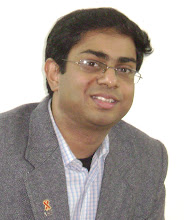Jai Ho has again won laurels in "best original song written for film" category at the World Soundtrack Academy awards in Ghent, Belgium. A few days back every Indian was proud of the moment when the whole world praised A.R. Rahman’s compositions for “Slumdog Millionaire” and awarded him the coveted “Oscars”. The western audience had woken to Rahman's musical mysticism but if you ask any of us Indian music admirers, these compositions are far from being called his best. In fact if we compare them to his previous works, it won’t be wrong to say that these are quite mediocre.
Since around two decades we have heard masterpieces from the maestro – gems one greater than the other – makes it hard to choose which of them would be called his best. Those from the south may know of more and better compositions than us regular bollywood music listeners as there lies Rahman's roots and when it comes to movie production, the flourishing South Indian Film industry shells out more than twice as many as bollywood every year many of whose music is composed by Rahman.
Since I am more of the bollywood type, I will stick to a few of his hindi ones and especially those that have lesser vocals and more orchestra so that the comparison would be easier (so I am not going to speak about Roza, Rangeela, Saathiya or Dil Se nor will I touch upon his amazing Sufi renditions in Fiza, Jodha Akbar or Delhi 6). I know leaving out all these would be severe injustice to his art but what I intend to do here is just to give an idea of the magic of Rahman's music that the western audience is unaware of.
For starters,let's talk about Rahman's third hindi soundtrack - Bombay (1995). If you have heard its unforgettable theme, then you will probably never say that he has ever made a more mellifluous composition. You can literally see through the weave of the calmness of dawn amidst the loudness and gore of the infamous '92-'93 Bombay riots. The simplicity of the instrumentation is so soothing that I doubt you will, after listening to it, say that "Dreams on fire" or "Paper planes" were anywhere close to this. Contrast this with "Once upon a time in India" from Lagaan (2001)which blends the flavours of English and Indian music together in the most magical and engaging manner giving the listener visuals of an uprising.
Bombay - Theme
Lagaan - Once upon a time in India
The next on the list would be the amazing music and rhythm of "Chandralekha" from Chor Chor/Thiruda Thiruda (1993) and "Taal se Taal Mila" from Taal (1999) - Slumdog's "O Saaya" and "Jai Ho" got nothing on them - Shivamani's (Rahman's drummer) beats here are much more composite and engaging - especially the Taal song.
Chor Chor - Chandralekha
Taal - Taal Se Taal Mila
I believe I have to write a sequel to this blog because I don't think I can finish this today but I believe I might have still made my point
... to be continued in the next blog
Subscribe to:
Post Comments (Atom)

2 comments:
wowwwwwwww chandan u have really created a very interesting blog
compliments bhai
Thanks Di ... just thought of jotting down what I felt and I believe most Indians already know :)
Post a Comment